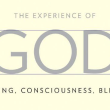Does Everything Happen for a Reason?
by Mark Shea
Filed under God's Nature

A reader once wrote to me to ask: "I have a quick question, and I apologize if it’s awfully trite, but I haven’t been able to find a satisfactory answer after (admittedly, not-so-exhaustive) searching. Here it is: From the standpoint of the Catholic Church: does everything happen for a reason? If it does, it smacks a bit of predestination; if it doesn’t, does that mean that God is out of control or doesn’t care? Say a flower grows on a mountaintop and it dies, and... Read More
Divine Hiddenness and Human Disclosure
by Dominicans of the Province of St. Joseph
Filed under God's Nature, The Existence of God

The agnostic has said in his heart, “If God exists, why doesn’t He make it more obvious, such that it could not be doubted?” Surely, with so much riding on God’s existence (theism, the moral law, salvation, etc.), he could do a little more to make it obvious! Given the stakes, the fact that God fails to make his existence more patent is yet further proof that he doesn’t exist. Travis Dumsday summarizes this objection — often termed the argument from divine hiddenness — as... Read More
The Challenge of Ontological Disproofs
by Douglas Beaumont
Filed under God's Nature, The Existence of God

Dr. Peter Kreeft once noted that, “When Saint Thomas Aquinas wrote his great Summa Theologica, he could find only two objections to the existence of God, even though he tried to list at least three objections to every one of the thousands of theses he tried to prove in that great work” (Fundamentals of the Faith, p. 54). The two objections that Aquinas had in mind were the problem of evil and the apparent ability of science to explain everything without God. During my doctoral... Read More
Are Omnipotence and Omniscience Incompatible?
by Dr. Edward Feser
Filed under God's Nature

A reader recently asked for my response to this passage from Richard Dawkins’ The God Delusion: "Incidentally, it has not escaped the notice of logicians that omniscience and omnipotence are mutually incompatible. If God is omniscient, he must already know how he is going to intervene to change the course of history using his omnipotence. But that means he can’t change his mind about his intervention, which means he is not omnipotent." (pp. 77-78) We have here a clever rhetorical... Read More
Why I Love My Invisible Friend
by Bishop Robert Barron
Filed under God's Nature, The Existence of God

One of the favorite taunts of the New Atheists is that religious people believe in an “invisible friend.” They are implying, of course, that religion is little more than a pathetic exercise in wishful thinking, a reversion to childish patterns of projection and self-protection. It is well past time, they say, for believers to grow up, leave their cherished fantasies behind, and face the real world. In offering this characterization, the New Atheists are showing themselves to be disciples... Read More
Does God Tempt People to Evil?
by Trent Horn
Filed under God's Nature

According to James 1:13, “Let no one say when he is tempted, 'I am tempted by God'; for God cannot be tempted with evil and he himself tempts no one.” Skeptics, aiming to disprove the Bible, may reply that God certainly does tempt people to do evil, and his actions during the Israelite's exodus from Egypt is proof of that. Let My People Go! In Exodus 3-4 God calls Moses from his life as a fugitive in Midian and tells him to return to Egypt in order to lead the Israelites to... Read More
Would God Create a Gigantic Universe?
by Trent Horn
Filed under Cosmology, God's Nature

Some critics claim that if God existed, then the universe would not be 13.7 billion years old or be 93 billion light years across as it is currently. Hasn’t science shown that this immense universe was not created for us but that we are an inconsequential part of an uncreated universe? The problem with this argument is that science can show us only the universe’s dimensions; it cannot reveal any meaning or lack of meaning inherent in those dimensions. In response to this argument,... Read More
What God Is and Isn’t
by Bishop Robert Barron
Filed under God's Nature

The most signal contribution of David Bentley Hart's new book, The Experience of God: Being, Consciousness, and Bliss (Yale University Press, 2013), is to clarify that serious theists and atheists, though they debate frequently concerning the reality of God, are hardly ever using the word "God" in the same way. This fundamental equivocation contributes massively to the pointlessness and meanness of many of these discussions. It is not so much that Christopher Hitchens and Richard Dawkins... Read More
Cows, Quarks, and Divine Simplicity
by Dominicans of the Province of St. Joseph
Filed under God's Nature

Recently, Cardinal George Pell publicly debated atheist Richard Dawkins on the subject of God’s existence. When Mr. Dawkins was asked about the cause of the universe, and how something could come from nothing, he replied that while his own theory cannot sufficiently answer this question, any answer would be better than something as complex as God. “'Nothing' is very, very, simple,” Dawkins says, “but God as a creative cause is very complex.” Dawkins’ point is that an immaterial... Read More
Judge Judy, Simon Cowell, and God
by Bishop Robert Barron
Filed under God's Nature

While tooling recently down the expressway, I noticed billboards advertising three separate television programs involving a judge: Judge Judy, Judge Mathis, and Judge Hatchett. As you know, these are only three of many more such shows that fill the airwaves of daytime TV. More to it, almost all of the “reality shows” that have sprung up in the last decade involve some sort of judgment. “Survivor” culminates with a gathering of the tribe and a solemn decision to vote someone off... Read More






